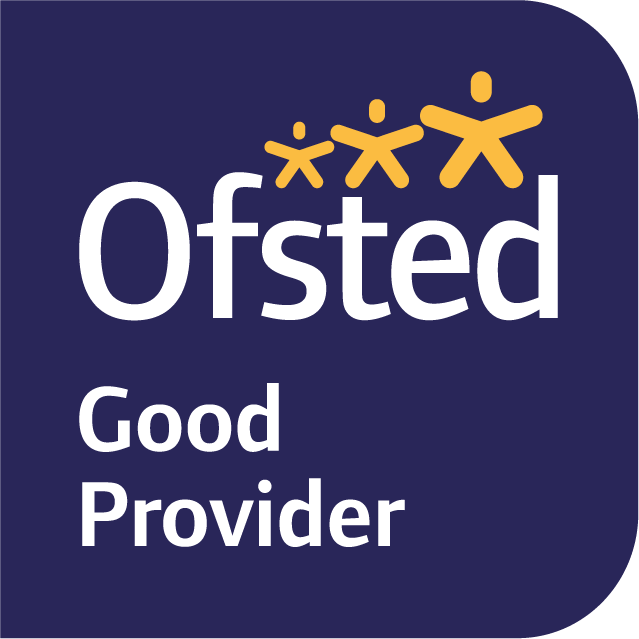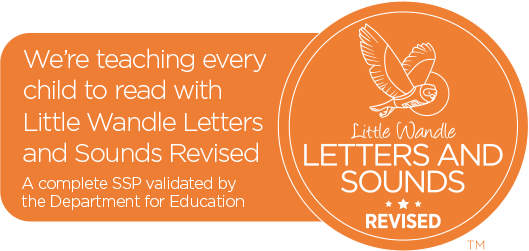English
At Lord Street Primary School, we put English at the centre of every child’s learning. We recognise the significance of language, communication, reading and writing in all aspects of life, from developing independent learning skills to successfully entering the world of work. We place high-quality texts at the heart of our curriculum and encourage children to develop their love of reading through our Reading for Pleasure initiatives. Experiential learning opportunities and a vocabulary-rich learning environment feed directly into children’s writing outcomes.
Underpinning our English curriculum are some core principles:
- Consciously builds on children’s existing language and literacy experiences.
- Recognises the importance of all those involved in the learning experience – parents and carers, wider family members, teachers and children.
- Values diversity and is culturally inclusive.
- Has high expectations of all children.
- Values and promotes critical enquiry.
- Offers challenge but provides models, demonstrations, examples and scaffolds to help children tackle them successfully.
All aspects of our English curriculum are interrelated, and progress in one area is supported by development in each of the others. At Lord Street Primary, we acknowledge the strong reciprocal relationship between speaking, listening, reading and writing.
Reading
"When I read great literature, great drama, speeches, or sermons, I feel that the human mind has not achieved anything greater than the ability to share feelings and thoughts through language"
- James Earl Jones
We aim to instil a passion for books and love of reading for every child from the start of their journey at Lord Street Primary with the ambition to be an outstanding reader. We aim to ensure every child is a confident decoder with a maturing understanding and passion for books by the end of KS1. We build upon this fluency by focussing upon further improving comprehension and language in KS2 through a range of collaborative and independent learning styles. We intend to develop confident readers that continue to develop a love of books which educate, challenge and enthral them throughout their time at Lord Street Primary and beyond.
At Lord Street Primary we recognise that the teaching of reading in KS1 will look different in some aspects to the teaching of reading in KS2. We have used the EEF ‘Improving Literacy in KS1’ and ‘Improving Literacy in KS2’ in conjunction with early year’s research to support our approach to the teaching of reading across school. We aim to ensure our curriculum promotes ambition, consistency progression and develops best practice across school.
We recognise that where there is under achievement, we need to address it through catch up programmes and interventions that deliver results for our children and close the achievement gap.
Decoding
Lord Street Primary uses ‘Little Wandle’ as a scheme to teach phonics. Please see our Phonics and Early Reading Policy for how early reading is prioritised and delivered. The emphasis on decoding develops into promoting fluency in KS2. Any child not yet passing the PSC (Phonics Screening Check) continues to receive phonics teaching based upon the Little Wandle scheme.
Comprehension
The teaching of reading comprehension is based upon the ‘Reciprocal Reading Model’ and adapted to suit a whole class model. All staff employ the structure, vocabulary and progression of learning that Reciprocal Reading advises. However, how it looks in class will depend upon the age of the children. All classes, however, have reading lessons based upon book talk in the structure of reciprocal reading and all children have access to the lessons and have support for decoding where needed.
Skills of the reciprocal reading model are rehearsed repeatedly throughout a cycle of approximately four sections. The intent is to use a mastery approach where all children can access quality age related texts and become increasingly confident and competent in the way they are able to think about texts and express their thoughts as the scaffolds are removed.
Daily Reading
Children move from the phonically organised book bands started in EYFS to level-banded books. Class teachers, supported by leaders, are responsible for checking who is reading regularly and for ensuring motivation and enthusiasm for home reading.
Text Choices
Our aim is to ensure all our children are able to read texts which educate, challenge and enthral. We want our children to encounter a wide variety of texts which challenge and ensure they can access academic texts in secondary school. Children have a progressively challenging reading curriculum a range of text types are visited each year. Other texts are also included which support our wider curriculum to ensure our children encounter texts which promote diversity and deepen knowledge.
Teachers must ensure children have access to the key texts to ensure progression and exposure throughout school. Professional judgement is used as to whether the text is used to teach reciprocal reading as a class reader, or indeed, both. A range of suggested non-fiction texts have also been added to the curriculum to help support reading across the entire curriculum.
Reading for Pleasure
All texts are chosen to enthuse our children and build confidence with reading and text types and intend to ensure children enjoy reading. However, we also implement a range of strategies and events alongside class teaching. These include:
- Class stories - story time is built into classes every day
- Library - all classes have regular visits to the library
- Library- recommended reads and book displays are updated regularly to promote reading across the school
- Reading corners – each classroom has a warm and inviting Reading corner, which includes the teacher’s recommended book of the week
- Reading buddies – groups of children in Year 5/6 read weekly with children in KS1
- Newsletter – each week the KS2 Reading Ambassadors choose a book of the week for EYFS, KS1 and KS2
- Author Visits
- Book day events
- Festivals/ Enrichment days
CPD
Regular reading CPD staff meetings are scheduled. Academic research is regularly distributed.
Staff are expected to continually assess and reflect upon the impact of their teaching. More formal assessment points three times per year allow teachers to analyse the effectiveness of teaching and learning and plan to address gaps. SAT tests allow school to judge progress and attainment against national benchmarks in years 2 and 6.
Pupils are given the opportunity to express their thoughts through pupil voice via our Reading Ambassadors.
Oracy
Oracy develops students' confidence, articulacy and capacity to learn. At Lord Street Primary we aim to provide a high quality oracy education which empowers students, regardless of their background, to find their voice for success in school and in life. Oracy is a driving force for learning which is weaved into all aspects of the curriculum for purposeful talk.
Pupils learn through talk and to talk; developing and deepening their subject knowledge and understanding through talk, which has been planned, designed, modelled, scaffolded and structured to enable them to learn effectively.
The deliberate, explicit and systematic teaching of oracy across year groups and throughout the curriculum supports our children to make progress in the four strands of oracy outlined in the Oracy Framework.
Each classroom reflects a learning culture that develops open discussions to create active learners who share ideas; viewpoints which support and encourages others to understand. Teachers use effective questioning and model high expectations to develop constructive peer discussions through collaboration which promotes critical thinkers and metacognition.
Pupils feel safe to articulate ideas and thoughts; to collaborate with peers who value their responses; and have the confidence to express views which are vital life skills that supports success in learning and future employment.
Writing
We believe that all pupils can achieve in Writing. We do not put ceilings on what pupils can achieve, and we do not hold pre-conceptions about any pupils’ ability to make progress. We believe through writing, pupils will have a chance to develop culturally, emotionally, intellectually, socially and spiritually. We feel that writing enables pupils both to acquire knowledge and to build on what they already know.
In the Early Years, children start their writing journey through their play, mark making for a range of different purposes, for example writing shopping lists and making cards for loved ones, as well as learning to write their name. They begin to develop their small motor skills so that they can use mark making tools appropriately. As they move into Reception, they learn the individual letters and sounds and begin to develop their letter formation. They use these emerging skills to write phonetically plausible words, phrases and simple sentences in a range of contexts. Alongside this we focus strongly on language development and oracy skills – if they can’t say it, they can’t write it! We give the children purpose for writing through the message centre and drawing club. Drawing club starts a child’s experience of school ‘Literacy’, immersing children into a world full of imagination where anything can happen. The message centre is also an important part of our continuous provision as it gives children the confidence and joy they deserve as writers adding extra 'magic' over the continuous provision so that children want to write.
Throughout Key Stage 1, the link between reading and writing continues to be reinforced. The children’s oracy skills are developed further through a wide variety of opportunities to discuss, verbalise and refine their ideas, for example through Helicopter Stories, role play, paired talk and drama. This prepares them for the writing process. Alongside this, the children learn about the structure and organisation of a variety of genres. Shared and modelled writing provides an opportunity for teachers to demonstrate the writing process. Children will then use their developing phonic knowledge within their writing, before editing and redrafting their work. Motivation is enhanced by encouraging children to write for a range of purposes and audiences, including opportunities to publish their writing. Children are taught to develop the foundations of a fast, accurate and efficient handwriting style.
In KS2 Children follow a structured approach to the writing process which begins with the deconstruction of a model text. Key grammatical structures are identified and relevant skills are taught through shared and modelled writing. Children then apply their learning through the process of planning, drafting, sharing, evaluating, revising, editing and publishing. Children working at greater depth are encouraged to exercise conscious control over levels of formality including the manipulation of grammar and vocabulary in order to demonstrate the appropriate register. High-quality literary texts are available to all learners which reinforces the reciprocity of reading and writing. The scope and depth of the literature inspires high standards for all through a mastery approach to learning and love of language in all its forms.
Spelling - The school follows the National Curriculum expectations for spelling. Progression of spelling is available on the Writing progression document. The school follows the scheme of Spelling Shed, which is based upon National curriculum guidance. It is expected that teachers explicitly teach spelling and that teachers use diagnostic assessment to focus effort of spellings children find difficult. Children are each given a username and password for Spelling Shed, which they can access in school or at home, to practise their spellings for that week.
Handwriting - It is paramount that children are rigorously taught correct letter formation from the very beginning of their time in school. During the foundation stage at Lord Street Primary, the children are taught to sit properly in order to have the correct posture for writing, hold a pencil in the correct position and develop a legible handwriting style. From KS1, the school adopts a cursive handwriting style. Teachers are expected to role model the school’s handwriting style when marking children’s work, writing on the board and on displays around the school.
Grammar, punctuation and vocabulary - Grammar, punctuation and vocabulary skills are taught explicitly during writing lessons and the children identify how authors have used them effectively during their reading lessons. Grammar and punctuation is planned and taught using the 2014 National curriculum year group expectations and children are expected to apply their knowledge in their writing.
Assessment
Teachers use assessment as an integral part of the teaching and learning process and link it clearly to the children’s next steps. Teachers record and track each child’s progress on our progressive marking grids and use this to set future targets.
The impact on our children is that they have the knowledge and skills to be able to write successfully for a purpose and audience. With the implementation of the writing sequence being established and taught in both key stages, children are becoming more confident writers and have the ability to plan, draft and edit their own work. By the end of key stage 2 children have developed a writer’s craft, they enjoy sustained writing and can manipulate language, grammar and punctuation to create effect. As all aspects of English are an integral part of the curriculum, cross curricular writing standards have also improved and skills taught in the English lesson are transferred into other subjects.
Subject Leaders
Subject leaders will conduct deep dives, which include lesson drop ins, pupil interviews and book looks to measure the impact of our teaching, based on how much children can remember.





